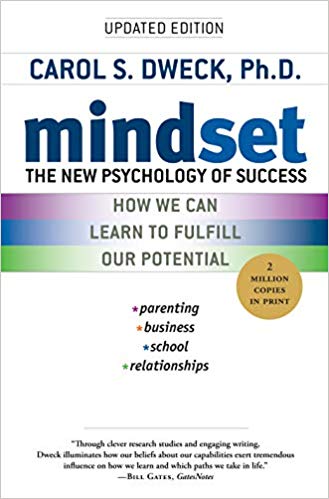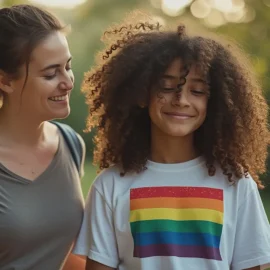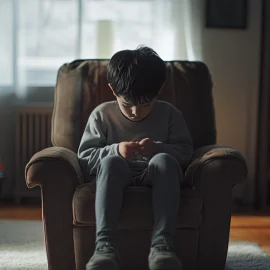

This article is an excerpt from the Shortform summary of "Mindset" by Carol Dweck. Shortform has the world's best summaries of books you should be reading.
Like this article? Sign up for a free trial here .
Bullying prevention is a huge issue in schools, but are we approaching the problem from all sides? Do you wonder how to stop bullying at its source?
We’ll cover how to stop bullying from the perspective of Carol Dweck’s growth mindset. We’ll also discuss why a fixed mindset contributes to the experience of both the bully and the victim.
How to Stop Bullying
Schools can stop bullying by promoting a growth-mindset culture. Most schools have fixed-mindset cultures — the authorities often believe in fixed traits, that some children are superior while certain others will never fit in. In contrast, some schools have greatly reduced bullying by fostering an atmosphere of self-development and cooperation rather than judgment.
Bullying Prevention
Therapist and consultant Stan Davis has developed an anti-bullying program that does three things: 1) It reforms bullies, 2) supports victims, and 3) encourages students to help victims. This has been an effective program addressing how to stop bullying and prevent bullying in the first place.
Here’s an instance in which it worked. Darla, an awkward, overweight third-grader was hit and taunted by classmates. But several years after Davis’s program was instituted, the bullying had stopped. Darla had supporters, including some who’d originally bullied her. When she moved on to middle school, classmates from her elementary school helped her make friends and protected her from harassment. The anti-bullying program works by establishing consistent discipline, helping but not judging bullies, and praising efforts and progress toward improving the atmosphere.
As a society, we no longer accept attacks on minorities, women, and those with disabilities as normal. Yet many school cultures accept the abuse of some children by more powerful or privileged children. This not only fails the victims, but it also fails the bullies by not believing they’re capable of meeting a high standard of behavior and helping them achieve it. Creating and enforcing this high standard is how to stop bullying.
Understanding Bullying
To understand how to stop bullying, we need to understand the motivations behind bullying.
Experiencing rejection is painful for an adult, but imagine how it feels to a child. Children experience rejection daily in schools. Starting in grade school, some kids are victimized, attacked, or ridiculed. Ongoing bullying makes some children’s lives a nightmare and can evolve into years of depression and anger. This is why it’s so crucial to address the issue of how to stop bullying (and how to prevent bullying from the start).
Schools may be reluctant to act in bullying prevention because they don’t see the bullying or it’s done by favorite students. Sometimes the authorities decide that the victims rather than the bullies are the problem. Nonetheless, as a society, we’re paying more attention to bullying today because of school shootings. The boys who shot classmates at Columbine High School in 1999 had been bullied for years. Bullying is suspected to have played a role in other mass shootings as well.
Bullies Need to Be Superior
Bullying in school is about powerful kids judging vulnerable kids as less worthy or less valuable human beings. Once they identify victims, bullies torment them constantly. Judging and humiliating others gives bullies a rush, as well as social status and power: others may look up to them or at least fear them. Helping the bully change his mindset is an important step of bullying prevention.
Bullies apply fixed-mindset thinking. They prove their superiority by singling out others as inferior because of some difference. Eric Harris, one of the Columbine shooters, was a typical victim. He had a chest deformity and was short, in addition to being a computer nerd and an outsider not from Colorado. Bullying prevention is imperative for preventing these atrocities.
Victims Want Revenge
A fixed mindset not only drives bullies, but it can also affect how victims of bullying respond. Many fixed-minded adults respond to rejection with thoughts of revenge and violence. Kids who are constantly bullied may be even more susceptible to revenge fantasies. We need to learn not only how to stop bullying but also how to help victims cope.
Researchers gave eighth-graders a scenario about bullying and asked them to imagine it was happening to them. When asked to write down how they’d feel and react if they were taunted on a daily basis, students with a fixed mindset said they’d feel judged (“I would think I was weird or a nobody”). They also wanted to strike back — to hit the bullies or run over them. They strongly agreed with the statement, “My number one goal would be to get revenge.”
Students with a growth mindset were less likely to feel judged or labeled as less worthy by bullying. They saw it as the bully’s problem — a way for them to feel better. They wanted to confront or question the bully about why they needed to hurt others. The growth-oriented students wanted to forgive and reform the bully.
If a bullying victim doesn’t have a fixed mindset, ongoing bullying can push them into one. A victim may begin to believe they’re inferior and deserve the bullying, especially if no one else stands up for them. Victimization can lead to depression, suicide, and sometimes even violence.
Brooks Brown, who was a classmate of the Columbine shooters, was also bullied but came to adopt a growth mindset. He believed people had the potential to change, and even reached out at one point to Eric Harris after the two had had a serious run-in in school. As an adult, Brown is now an anti-bullying advocate. He believes school shooters aren’t monsters but people much like everyone else, who need help. Helping them is part of how to stop bullying.
———End of Preview———

Like what you just read? Read the rest of the world's best summary of "Mindset" at Shortform . Learn the book's critical concepts in 20 minutes or less .
Here's what you'll find in our full Mindset summary :
- The difference between a growth and a fixed mindset
- How a fixed mindset keeps you back throughout your life: education, relationships, and career
- The 7 key ways to build a growth mindset for yourself






